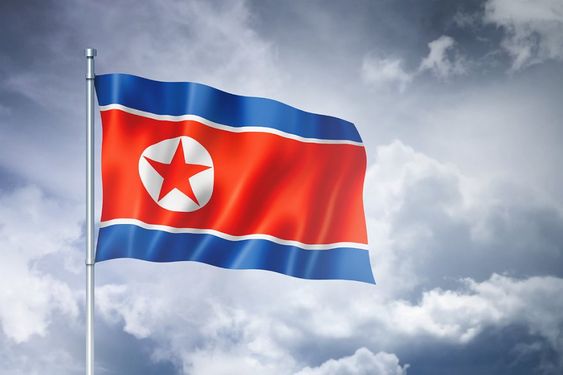Why is North Korea So Strict
North Korea’s strictness is a mix of iron-fisted leadership, tight control over information, and a feeling of external threat. The Kim family enforces a unique ideology and prioritizes military strength, while harshly repressing dissent. This rigid system maintains their power, but also fuels their isolation from the outside world, creating a society with little freedom for its people.
Historical Context
The Korean War and Its Impact
The roots of North Korea’s strict policies can be traced back to the Korean War (1950-1953). This brutal conflict, which ended in an armistice rather than a peace treaty, left the Korean Peninsula divided. The war’s devastation fostered a deep sense of insecurity in the North Korean leadership, shaping their future policies. Read about What Is the Purpose of Government
Division of Korea into North and South
The division of Korea into two separate entities—North and South Korea—created starkly different political and economic systems. North Korea, under Kim Il-sung, embraced a communist ideology with a focus on self-reliance and military strength, setting the stage for the strict controls we see today.

Political System
Introduction to the Juche Ideology
Central to North Korea’s political system is the Juche ideology, introduced by Kim Il-sung. Juche, which means “self-reliance,” emphasizes independence from foreign influence and self-sustenance. This ideology justifies the government’s tight control over all aspects of life to maintain independence. Discover about What is Limited Government
The Role of the Kim Dynasty
The Kim dynasty, starting with Kim Il-sung and continuing with Kim Jong-il and Kim Jong-un, has maintained an unyielding grip on power. The dynastic rule is characterized by a cult of personality, where the leaders are portrayed as infallible and almost divine. This contributes to the strict social order and control.
Centralization of Power
Power in North Korea is highly centralized, with the Kim family at the apex. This centralization ensures that any potential threats to the regime are swiftly neutralized, contributing to the country’s strict governance. Don’t Miss to Check Out Our Website: Webs Universe
Military Influence
Songun Policy (Military First)
The Songun, or “Military First,” policy prioritizes military needs over all other aspects of life. This policy, established by Kim Jong-il, means that the military receives the lion’s share of resources and attention. The result is a highly militarized society where strict discipline is the norm.
Impact on Society and Economy
The emphasis on military strength has significant impacts on society and the economy. Resources are diverted to the military, leading to shortages and economic hardship for the general population. This environment justifies further strict control to maintain order and stability.
Economic Control
State-Run Economy
North Korea operates a state-run economy where the government controls all means of production and distribution. This centralized control allows the regime to enforce strict economic policies and limit individual freedoms.
Limited Foreign Trade and Its Effects
Due to international sanctions and the regime’s own policies, foreign trade is extremely limited. This isolation from global markets leads to economic challenges, which the government uses to justify strict controls to manage scarcity and maintain order.
Social Structure
The Songbun System
North Korean society is divided by the Songbun system, a caste-like classification based on loyalty to the regime. Your Songbun status affects every aspect of your life, from job opportunities to access to food and healthcare. This rigid structure reinforces the regime’s control over the population.
Class Divisions and Social Mobility
Social mobility in North Korea is virtually nonexistent. The class divisions created by the Songbun system ensure that those deemed disloyal or less loyal are kept in a lower status, further entrenching the regime’s power.
Propaganda and Information Control
State-Controlled Media
All media in North Korea is state-controlled. The government uses media to propagate its ideology and portray the regime positively. Dissenting voices are silenced, and the flow of information is tightly regulated to maintain control over public perception.
Internet and External Media Restrictions
Access to the internet and external media is heavily restricted. The government fears that exposure to outside information could undermine its authority. As a result, citizens have limited knowledge of the outside world, reinforcing the regime’s strict control.
Human Rights Issues
Reports of Human Rights Violations
Numerous reports from international organizations highlight severe human rights abuses in North Korea. These include arbitrary detention, forced labor camps, and lack of freedom of expression. The regime’s strict policies aim to suppress any form of dissent or opposition.
International Reactions and Sanctions
The international community has reacted to North Korea’s human rights record with sanctions and diplomatic pressure. However, these measures have had limited success in changing the regime’s behavior, often leading to further isolation and internal strictness.
Cultural Aspects
Traditional Values and Confucian Influence
Traditional Korean values and Confucian principles, which emphasize hierarchy and obedience, are manipulated by the regime to justify its strict control. The government portrays itself as the guardian of these values, demanding loyalty and conformity.
Role of Cultural Identity in State Control
Cultural identity plays a significant role in state control. The regime uses a strong sense of national pride and identity to rally the population around the leadership, portraying any dissent as betrayal of the nation’s heritage.
Isolationism
Reasons Behind North Korea’s Isolationist Policies
North Korea’s isolationist policies stem from a desire to maintain sovereignty and prevent external influence. The leadership believes that isolation is essential to protect the country from foreign threats and preserve the regime’s power.
Impact on Foreign Relations
These policies result in strained foreign relations. While North Korea occasionally engages in diplomacy, its isolationist stance often leads to misunderstandings and conflicts with other nations.
Education and Indoctrination
The Education System in North Korea
Education in North Korea is highly centralized and focused on indoctrination. From a young age, children are taught to revere the Kim family and adhere to the Juche ideology. This education system ensures that loyalty to the regime is ingrained from childhood.
Indoctrination from a Young Age
Indoctrination is pervasive, with schools, media, and even family life emphasizing regime loyalty. This constant reinforcement of propaganda makes it difficult for alternative viewpoints to take root.
Daily Life of Citizens
Restrictions on Movement and Travel
Citizens face severe restrictions on movement and travel, both within the country and abroad. Travel permits are required for internal movement, and leaving the country is virtually impossible for the average citizen.

The Role of Surveillance in Daily Life
Surveillance is omnipresent in North Korea. The government employs a vast network of informants and security personnel to monitor the population. This constant surveillance creates an environment of fear, discouraging dissent and ensuring compliance.
Resistance and Defection
Stories of Defectors
Despite the risks, some North Koreans manage to defect. Stories of defectors often highlight the extreme measures taken to escape and the harsh realities faced by those who remain. These accounts provide a rare glimpse into the challenges of life under the regime.
Challenges and Dangers of Escaping
Defecting from North Korea is fraught with danger. Those caught attempting to escape face severe punishment, and even successful defectors often struggle to adapt to life outside the isolated regime. The risks underscore the strictness of the North Korean state.
International Perspective
How Other Countries View North Korea
The international community views North Korea with a mix of concern and condemnation. The regime’s human rights abuses, nuclear ambitions, and aggressive rhetoric contribute to its reputation as a pariah state.
Diplomatic Efforts and Negotiations
Efforts to engage North Korea diplomatically have had limited success. While there have been moments of détente, the regime’s isolationist policies and insistence on maintaining strict control complicate sustained diplomatic progress.
Conclusion
Understanding why North Korea is so strict involves examining its historical context, political system, military influence, economic control, social structure, propaganda mechanisms, and cultural aspects. The regime’s policies are driven by a desire to maintain power and control, influenced by a legacy of conflict and a deeply ingrained ideology. While the future of North Korea remains uncertain, the resilience of its people and international efforts continue to offer glimmers of hope for change.
FAQs
Why does North Korea restrict its citizens so much?
North Korea’s strict control over its citizens is driven by a desire to maintain power and prevent dissent. The regime believes that tight control is necessary to protect its sovereignty and ensure stability.
How does the government maintain control over the population?
The government maintains control through a combination of propaganda, surveillance, restricted access to information, and a rigid social structure. Loyalty to the regime is enforced from a young age, and any dissent is swiftly punished.
What are the main challenges faced by North Korean citizens?
North Korean citizens face numerous challenges, including economic hardship, restricted freedoms, and constant surveillance. The lack of access to information and opportunities for mobility further exacerbate their difficulties.
How does North Korea’s strictness affect its international relations?
North Korea’s strict policies contribute to its isolation and strained relations with other countries. The regime’s human rights abuses and nuclear ambitions often lead to international sanctions and diplomatic conflicts.
Is there any hope for change in North Korea’s policies?
While change in North Korea’s policies is challenging due to the regime’s grip on power, ongoing diplomatic efforts and the resilience of the North Korean people offer some hope. International pressure and internal dissent may eventually lead to reforms.











